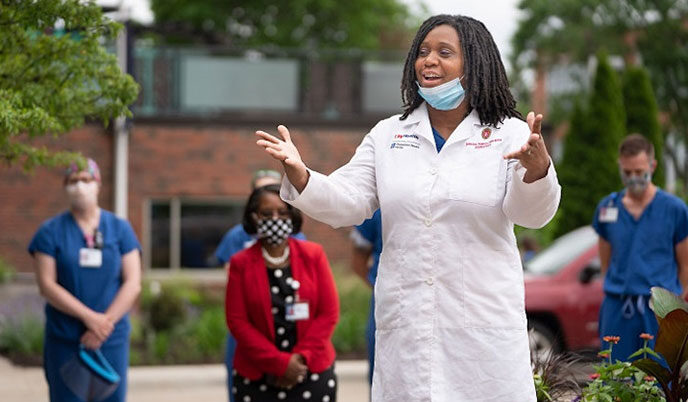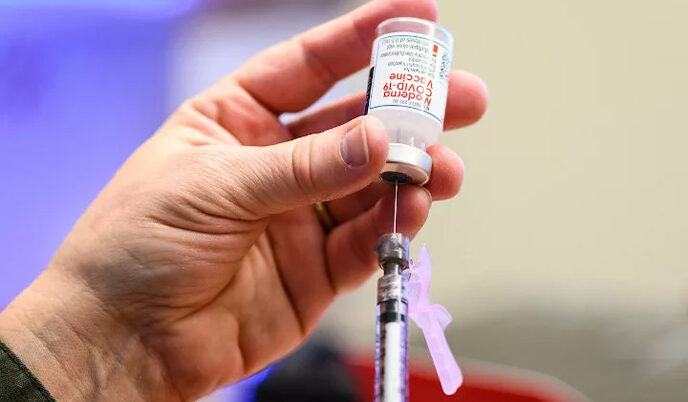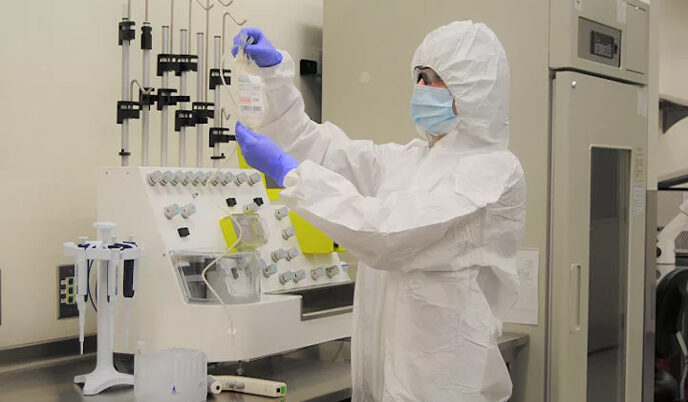
Pediatric research study aims to get medically complex K-12 students back to school safely
The last 18 months have been a struggle for 6-year-old Cade Moureau and his family.

Jasmine Zapata recognized as ‘Superhero of Medicine’ by Wisconsin Medical Society
Jasmine Zapata, MD, MPH, assistant professor of pediatrics, didn’t expect to be called a superhero in her evening mail. But one night during a tiring week in late 2019 while sorting through mail she spotted a letter from the Wisconsin Medical Society. To her total surprise, she’d been named their next Superhero of Medicine.

UW enrolling expectant mothers, families for childhood asthma and food allergies studies
Researchers at the University of Wisconsin School of Medicine and Public Health are recruiting expectant mothers and families to join two new studies designed to help experts better understand the causes of two of the most common chronic diseases in children: childhood asthma and childhood food allergies.

UW selected as site for Moderna COVID-19 vaccine pediatric clinical trial
Aug. 16, 2021 update: Thanks to overwhelming interest from our community, UW Health and the UW School of Medicine and Public Health have already met the recruitment objectives for Moderna’s pediatric COVID-19 vaccine clinical trial. If your child is selected to be part of the trial, you will be contacted directly. Advancements in science, public health, and clinical care often cannot happen without a supportive and engaged citizenry, and we greatly appreciate this community’s ongoing efforts to help end this pandemic.

UW begins new clinical trial to treat fatal blood diseases in children, young adults
A clinical trial has launched at the UW School of Medicine and Public Health to test the safety of a new type of stem cell transplantation to treat a variety of deadly blood disorders in children and young adults.

UW to lead national research on pediatric asthma in low-income urban areas
The UW School of Medicine and Public Health has been selected as the national leadership center for a new clinical research network that will conduct pediatric asthma research in low-income urban settings around the country.

UW Health offers screen time guidance for families
In a new study out today in a leading pediatrics journal, UW Health experts urge families to be mindful of increased screen time, especially as we approach virtual classes in the middle of winter.

First-in-humans clinical trial to treat children with relapsed neuroblastoma opens at American Family Children’s Hospital
A first-in-humans clinical trial for children with relapsed or refractory neuroblastoma has opened at American Family Children’s Hospital (AFCH) and is being conducted by researchers at University of Wisconsin School of Medicine and Public Health. Neuroblastoma is one of the most common solid tumors in children. Patients who are classified as “high-risk” (about 40 percent of those diagnosed) have less than a 50 percent survival rate.

‘COVID toes’ clinical trial underway at UW School of Medicine and Public Health
A team of researchers at the University of Wisconsin School of Medicine and Public Health is studying how the skin condition referred to as “COVID toes” is a connected to the virus, whether it is symptom of a COVID-19 infection or an immune response to the virus.

Respiratory allergies and allergic asthma may have protective mechanism in COVID-19
Respiratory allergy, asthma and controlled allergen exposure were associated with significantly reduced gene expression in a protein that the coronavirus uses to infect cells with COVID-19, according to a new study by the University of Wisconsin School of Medicine and Public Health.

Molds damage lung’s protective barrier to spur future asthma attacks
University of Wisconsin–Madison researchers have identified a new way that common Aspergillus molds can induce asthma, by first attacking the protective tissue barrier deep in the lungs.

UW study uses a new approach to understanding teens and technology
What teens find important on social media is a better measure of how they interact with technology than how many minutes they spend using social media, according to a new study from the University of Wisconsin School of Medicine and Public Health.